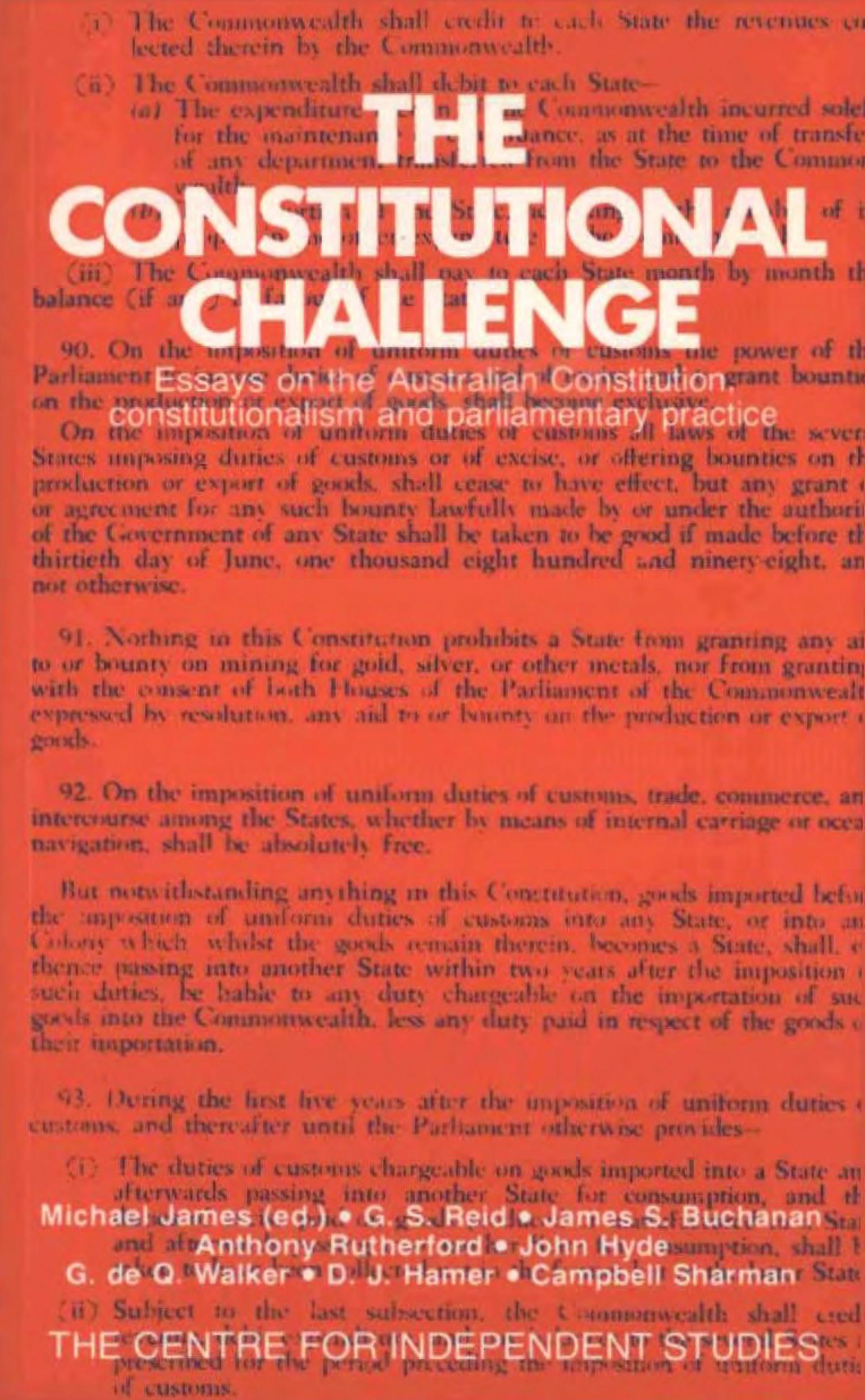The Constitutional Challenge
Home » Publications » The Constitutional Challenge
The Readings series of the Centre for Independent Studies was established to analyse certain issues from a number of viewpoints. This book, the fourth in the series, surveys the Australian Constitution and constitutionalism in the light of ideas about what the functions of government should be and how its activities are carried out (at least in the Australian context) through the practices of Parliament. It adopts a multidisciplinary approach to the subjects under investigation, bringing together the skills of the political scientist, the lawyer, the practising politician and the economist. The book further underpins the primary object of the Centre, namely, to study the principles which enhance the many aspects of a free and open Australian society.
History has invariably shown that the state has been the greatest threat to the freedom of the people it governs. Constitutions have been one of the more satisfactory ways of delineating the bounds of responsible government activity, though the existence of a constitution is not a sufficient condition for good government — as Milton Friedman pointed out to a CIS seminar in 1981. He noted that many South American countries had copied word for word the constitution of the United States and few could be described as desirable examples of democracy and freedom.
It might be added that the written constitution of the Soviet Union is not short on fine sentiments guaranteeing freedom and fundamental individual rights. There is obviously much more. In Australia today, the Constitution is no doubt under more informed discussion than for decades. It is seen by some as a restriction on the ability to achieve quickly certain political and social ends. This is undeniable, but in designing the Constitution, its framers did provide for change which would allow for the evolving perceptions of the population.
Such changes have occured in the past both smoothly and democratically. There may be, of course, shortcomings in the Australian Constitution, though in the end it is a matter of opinion as to what these deficiencies might be. It is to be hoped that as discussion about the Constitution and Austalia’s political institutions and practices continues, the clearest motive should be that the freedoms and rights of the citizenry are enhanced within a framework of the rule of law rather than, as so often is the case with proposed legislative and constitutional changes, one or other group is served at the expense of all. To achieve this aim would seem to require a more widespread understanding of our political institutions, especially the very real role that constitutions play in modern government. The greater the understanding of the consequences of various governmental practices, the better able will the public be to make informed decisions about crucial issues that affect them. This is one of the challenges that this book responds to.
In publishing this volume, the Centre for Independent Studies feels a significant contribution has been made to the discussion of important issues. Nevertheless, the views expressed by the various authors are theirs and are not necessarily shared by the Centre’s staff. Advisers, Trustees, or Directors.
